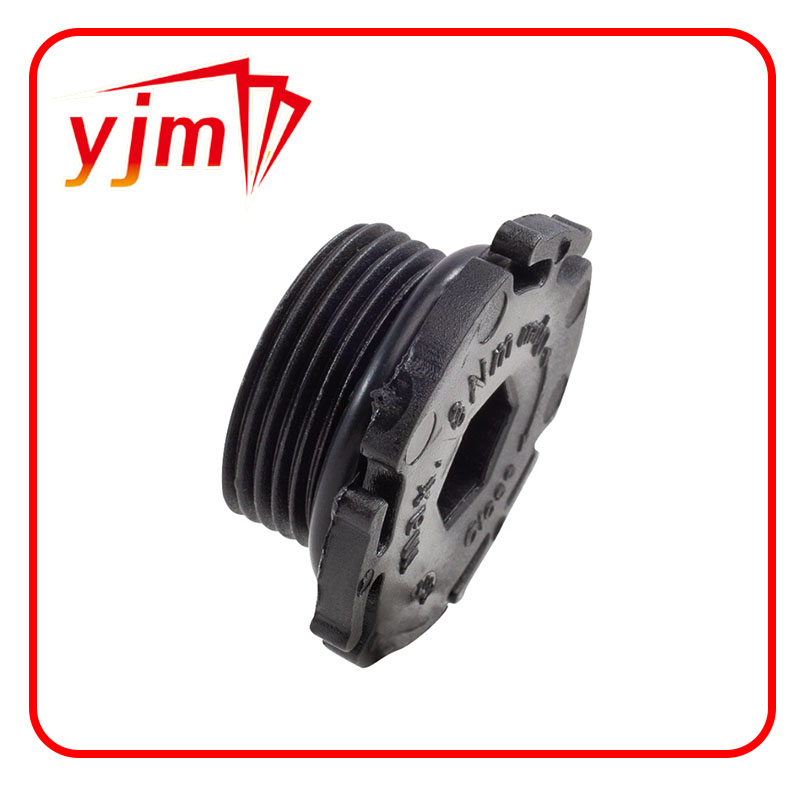Oil Leakage Issues Related to Oil Pan Gasket and Their Solutions
Understanding Oil Leaking from the Oil Pan Gasket
Oil leaks from the oil pan gasket can be a serious concern for car owners. The oil pan plays a critical role in the function of your vehicle's engine, as it serves as a repository for the engine oil, which lubricates and cools the engine components. When the oil pan gasket fails, it can lead to a range of problems that could potentially damage the engine if not addressed promptly.
What is the Oil Pan Gasket?
The oil pan gasket is a crucial component that seals the oil pan to the bottom of the engine block. It is typically made of rubber, cork, or silicone materials, designed to withstand the high temperatures and pressures within the engine. Over time, various factors can contribute to the degradation of the oil pan gasket, leading to leaks.
Common Causes of Oil Leaking from Oil Pan Gasket
1. Age and Wear Like any other part of a vehicle, the oil pan gasket experiences wear and tear over time. Exposure to heat cycles, engine vibrations, and the corrosive properties of engine oil can weaken the gasket material, making it prone to cracking or hardening.
2. Improper Installation If an oil pan gasket is not installed correctly, it can lead to poor sealing and eventual leaking. This includes using the wrong type of gasket or insufficient torqueing of the bolts that hold the oil pan in place.
3. Engine Overheating Excessive engine temperatures can damage the oil pan gasket, causing it to warp or degrade. This can happen due to a failing cooling system, a malfunctioning thermostat, or low coolant levels.
4. Severe Dirt and Debris Accumulation of dirt, debris, or even metal shavings around the gasket area can compromise its integrity. When foreign materials get lodged within the gasket, it can create gaps, leading to leaks.
Symptoms of an Oil Leak
Recognizing the signs of an oil leak is crucial for timely intervention. Here are several symptoms you might notice
oil leaking from oil pan gasket

- Oil Spots One of the most visible signs is the appearance of oil spots or puddles under the vehicle, indicating that oil is leaking from the gasket. - Low Oil Levels Regularly checking your oil levels can help you determine if there is a leak. If you notice that you are frequently topping off your oil without a clear explanation, an oil leak may be the culprit.
- Engine Noise Insufficient oil levels can lead to increased friction between engine components, resulting in noises such as ticking or knocking
.- Burning Oil Smell If the leaked oil drips onto the exhaust components, it can produce a burning smell, which might indicate an oil leak.
What to Do If You Suspect an Oil Leak
If you suspect that your vehicle has an oil leak, particularly from the oil pan gasket, it is essential to take action promptly
1. Inspection Start by inspecting the area beneath the vehicle for any oil spots. Use a flashlight to check the condition of the oil pan and gasket.
2. Check Oil Levels Regularly monitor your vehicle's oil levels and add oil if necessary. However, be cautious not to ignore the leak's source.
3. Consult a Mechanic If you're unsure about the severity of the leak or how to fix it, consulting with a qualified mechanic is advisable. They can perform a thorough inspection and recommend the best course of action.
4. Replacement If the oil pan gasket is indeed the source of the leak, replacing it will likely be necessary. This can involve draining the oil, removing the oil pan, cleaning any old gasket material, and installing a new gasket with the proper torque specifications.
Conclusion
An oil leak from the oil pan gasket can lead to significant engine damage if not addressed in a timely manner. Awareness of the common causes, symptoms, and necessary actions can help you maintain your vehicle's health and longevity. Regular maintenance checks and prompt repairs are vital for protecting your investment and ensuring the smooth operation of your car.
-
Simplifying Oil Changes: A Comprehensive Guide to Oil Drain Plugs and Their Variants
News Aug.04,2025
-
Mastering Oil Drain Maintenance: Solutions for Stripped, Worn, and Upgraded Oil Plugs
News Aug.04,2025
-
Fixing Oil Pan Plug Issues: Leaks, Stripped Nuts, and the Right Replacement Solutions
News Aug.04,2025
-
Everything You Need to Know About Oil Drain Plugs: Sizes, Fixes, and Upgrades
News Aug.04,2025
-
Choosing the Right Oil Drain Plug: A Guide to Sizes, Materials, and Drain Innovations
News Aug.04,2025
-
A Complete Guide to Automotive Drain Plugs: Types, Problems, and Innovative Solutions
News Aug.04,2025
-
The Ultimate Guide to Car Repair Kits: Tools and Essentials Every Driver Should Own
News Aug.01,2025
Products categories















